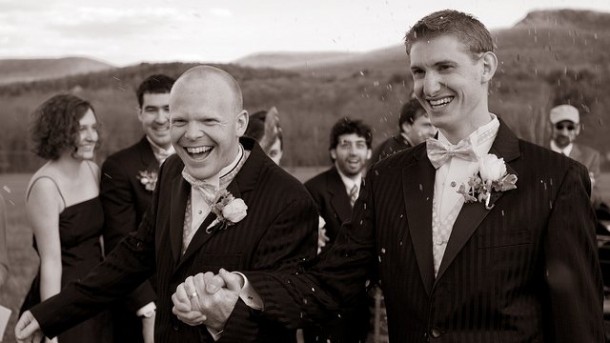Reasoning Behind Gay Marriage in The States
During the first week of the new year, Florida took a stand and became the 36th state to carry out serious actions to legalize gay marriage. In order to fully accomplish this, the law has to pass through and be approved by congress. This was made official a couple months after Judge Robert Hinckle said in an earlier ruling in August that the ban against gay marriage was unconstitutional.
This ban being lifted has made a lot of people happy; even the younger people in the LGBTQ (lesbian, gay, bisexual, transgender, queer) community. It has become a more secure and safe place for young people and adults alike to come out and be themselves. However, there are still some problems one could face. One of these problems is stereotyping. Jennifer Golding, who works in the Callen-Lorde Community Health Center for LGBTQ patients, said she’s “heard LGBT people stereotyped throughout my [her] life. They’ve been teased, harassed, beaten, and even killed just because of their identity and sexual orientation. I feel that this population is no different than anyone else. They’re individuals who contribute to society and work in all facets of employment.”
There are many movements and parades for the LGBTQ community in this day and age, like the annual New York City LGBTQ Pride March which supports and encourages those apart of the LGBTQ community. According to the Human Rights Campaign, 73% of LGBTQ youth admit that they are more honest about themselves online than they are in real life. This is why it’s instrumental to have safe places for and celebrations of these marginalized people in the real world, so that they feel safe not only in the comfort of their own homes but everywhere. For LGBTQ people living in any of the states that have banned gay marriage, however, that may be easier said than done.
As of now, 14 states have either a constitutional or legal ban on same-sex marriage. Most of these states are in the deep south or midwest which are both highly conservative. The overwhelming majority of people in these states feel as if traditional marriage values should be preserved, and that legalizing same-sex marriage would not do so. Geena Garcia, freshman at Westhampton Beach, says “Many people [in these regions] believe that legalizing gay marriage would break the sanctity of ‘traditional’ marriage including a man and a woman. Their argument is almost always that marriage is for procreation and, since same-sex marriage cannot yield children, it is not right. In reality, marriage should be seen as a source of mutual love, respect and support, not a source of children.” While marriage is surely an emotional commitment more than anything, it also has financial and legal benefits such as joint-ownership of property, tax benefits, and employee-sponsored health insurance. Allowing same-sex couples access to these things would certainly help to fill the gap between straight and gay couples.
The debate over same-sex marriage today is comparable to the debate over interracial marriage during segregation, and even the inclusion of Black Americans and women as citizens during the women’s and civil rights movements. Fifty years ago, the sight of an interracial couple walking down the street was a rarity. Today, it is a norm. It is safe to say that history will always repeat itself, and in the wake of the tragic death of a young teenager who took her own life due to the intolerance and insensitivity of the very household she grew up in, serious changes will come into play regarding the LGBTQ community.

Paige is a sophomore at Westhampton Beach High School. She is a writer for The Hurricane Eye, this 2014-2015 school year. Paige is a music lover and has...






